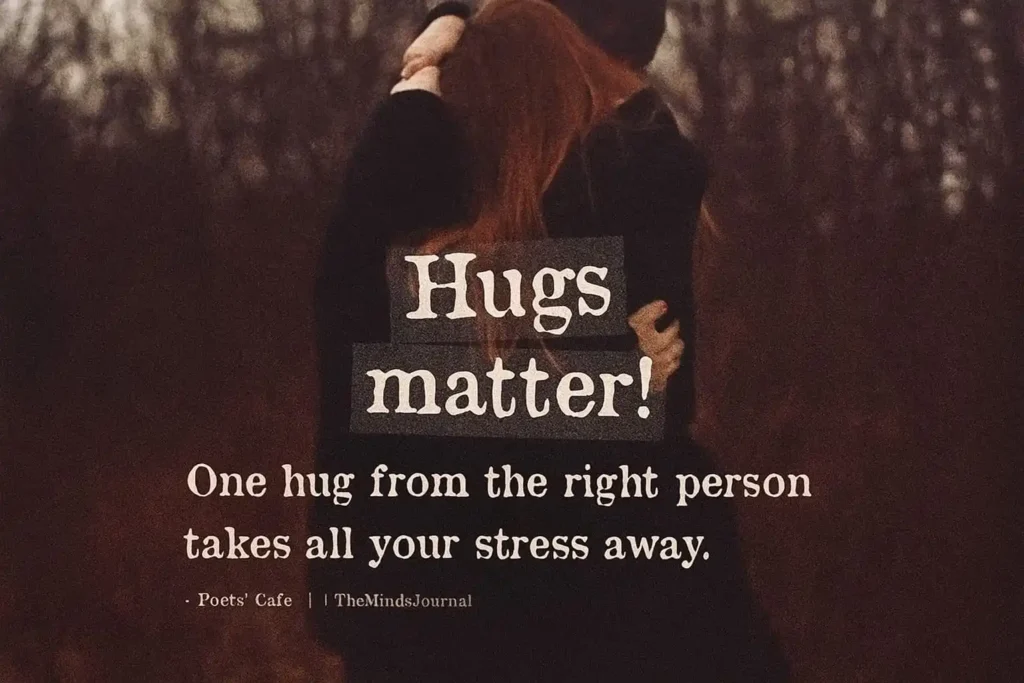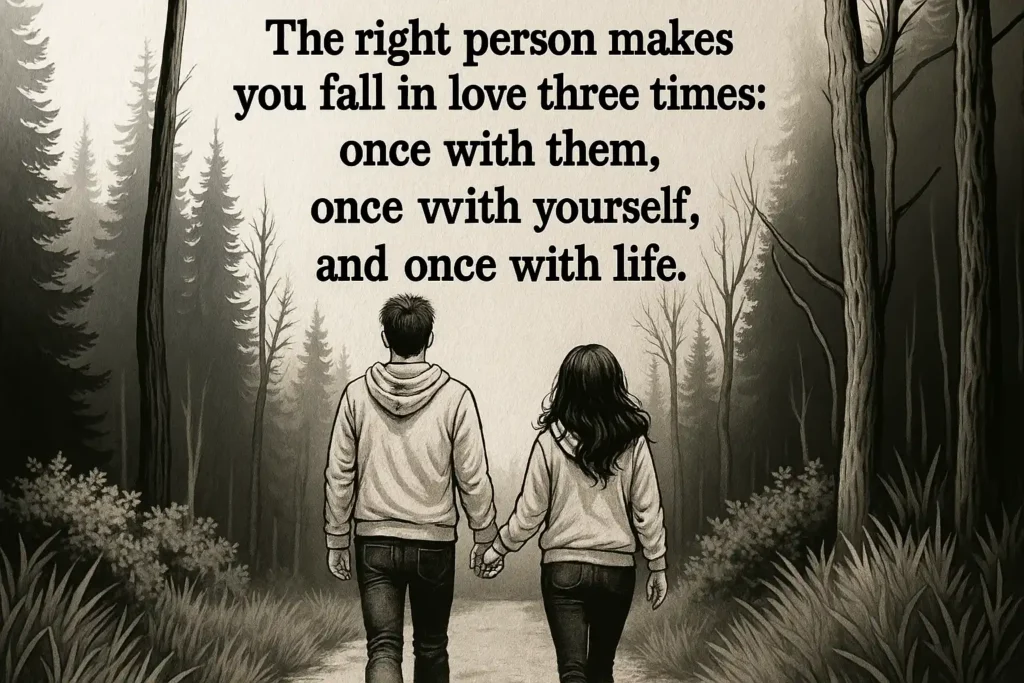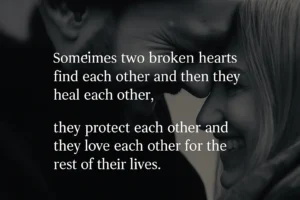The Hope for a Love That Heals
I don’t know your whole story, but if you’re here, I’m guessing your heart’s been through it. Maybe more than once. The kind of heartbreak that leaves you questioning not just people, but your own judgment. The kind that makes “real love” feel like a fairy tale you once believed in.
And yet—here you are. Still hoping. Still open. Still searching for something deeper than chemistry or butterflies. Something steady. Healing. Safe.
I want to speak to you—not the version of you who’s trying to be cool or detached or pretend you’re fine. I’m talking to the version who knows deep down that love was never meant to feel like survival. You’re not looking for someone to rescue you, and you’re not here to rescue anyone either. You’re ready for a relationship that feels like coming home. A true partnership. Maybe even… your future spouse.
But here’s the thing no one really tells you after heartbreak: finding that kind of love—one with roots deep enough to hold you both steady—requires more than just chance or chemistry. It takes intentionality. Awareness. And yes, some unflinching honesty.
This isn’t about playing games or following trends. This is about knowing what kind of love you’re willing to build your life on—and how to spot a person who’s actually capable of building it with you.
So if you’re done chasing sparks that burn out, and you’re ready for the kind of love that stays lit through storms and silence… keep reading. We’re going to walk through the quiet signs of something real. The kind of love that doesn’t just feel good—it does good. And more importantly, it lasts.
Healing Yourself First: The Unseen Prerequisite of Real Love

Let’s be honest. Most of us have, at some point, tried to skip the healing process by jumping into something new. It’s almost reflex. That hollow feeling inside makes you think maybe another person will fix it. I’ve done that. Maybe you have too.
But here’s what I’ve learned through real, sometimes painful experience: the wounds you avoid facing will always find a way to show up later. Usually right when something starts to feel serious. That’s why before we even talk about finding a life partner, we need to pause and look inward.
This isn’t about perfection. You don’t need to be “fully healed” to be loved, but you do need to be honest with yourself. Here are some questions I had to ask myself—maybe they’ll help you too:
- Have I taken responsibility for the part I played in my past relationships?
- Do I know what tends to trigger me emotionally, and where that comes from?
- Am I looking for someone to fix me, or someone who can grow with me?
That last one was hard for me. It’s easy to tell yourself you’re ready, when deep down, you’re hoping someone else will come in and fill all the empty spaces. But that’s not love. That’s survival mode. And no one deserves to carry that kind of pressure—not even you.
Real love needs real stability. That doesn’t mean you’re never sad, or anxious, or struggling. It means you know how to care for yourself in those moments, instead of expecting someone else to be your emotional lifeline.
When you’ve done even a small amount of healing, something beautiful starts to happen. You stop feeling drawn to the ones who stir up chaos, and you begin to notice the ones who feel safe, grounded, kind. You become more protective of your peace. And that’s not selfish. That’s wise.
What if I still feel broken sometimes?
You’re human. So do I. So does everyone. What matters is not whether you still feel the weight of the past, but whether you’ve learned how to carry it without letting it define your future. If you’re willing to keep growing, you’re already further along than you think.
How to Recognize a Partner Who’s Done the Work, Too

Now here’s where things get real. Because healing on your own is only half the story. The rest comes down to who you choose to walk with. And if you’ve ever fallen for someone who seemed promising, only to watch things unravel fast, you already know how confusing that can be.
So let’s clear the fog.
You are not looking for someone to rescue. You’re not here to collect broken pieces and glue someone else back together. That’s not your role anymore. You’re looking for someone who’s done some work on themselves. Someone who doesn’t just want love, but knows how to live it.
So what does that actually look like?
1. They speak about their past with respect, not venom
Everyone has a story. But pay close attention to how they tell it. Do they take ownership, or is every ex “crazy”? Do they reflect with some grace, or is there a trail of blame and bitterness?
Someone who’s grown doesn’t need to drag others down to lift themselves up. They speak from clarity, not from open wounds.
2. They can hold space for emotion, not shut it down
Emotional maturity is quiet. It looks like someone who can sit with discomfort, not run from it. Someone who listens when you speak from a vulnerable place, instead of trying to fix you or silence you. Someone who knows how to express frustration without punishment.
This kind of emotional safety is non-negotiable in a lifelong relationship. And it’s not rare—just rarely celebrated.
3. They show empathy in how they treat others, not just you
Pay attention to how they speak to people who “don’t matter”—a server, a stranger, someone they disagree with. Because real empathy isn’t something people turn on for romance. It’s part of who they are.
When someone has compassion in their everyday life, they’re more likely to be compassionate when things get hard between the two of you. And they will, eventually. That’s life.
4. They don’t need you to complete them
This one can be tricky. It’s flattering when someone says, “You’re my everything,” but in a healthy relationship, that’s not the goal.
Look for someone who has their own life—friends, dreams, routines. Not because you’ll be less important, but because they don’t expect you to be their only source of joy. That kind of independence makes room for partnership, not pressure.
What if I really like someone but they haven’t fully healed yet?
Then be honest—with them and with yourself. You can still care deeply without stepping into the role of caretaker. If someone is in process but owns their healing, moves with humility, and doesn’t rely on you to regulate their emotions, there may be something solid there. Just make sure you’re not confusing potential with readiness.
Green Flags in a Relationship That’s Built to Last
Let’s shift the focus for a minute. Instead of obsessing over red flags (we’ve all memorized that list by now), let’s talk about what healthy actually looks like. Because sometimes, when you’ve been used to chaos or disappointment, calm can feel… unfamiliar. Even boring.
But the truth is, lasting love is rarely dramatic. It’s steady. It’s rooted. And the best relationships don’t need to shout to feel real. They build a quiet confidence over time — one decision, one conversation, one ordinary day at a time.
Here are the signs I look for now. Not in some perfect checklist kind of way, but in a deeply human, this-might-actually-be-someone-I-can-build-with kind of way.
1. You share core values, not just good vibes
It’s easy to fall for charm, laughter, shared playlists. But the deeper question is, do your principles line up? Do you see life through a similar lens when it comes to faith, family, honesty, finances, commitment?
Because love might start with chemistry, but marriage lives and dies by shared values. That’s what keeps two people aligned when the feelings fluctuate — and they will.
2. Conflict brings clarity, not chaos
All couples argue. But in a strong relationship, disagreement doesn’t feel like destruction. You talk through hard things without tearing each other down. You disagree and still feel safe.
If a person can stay present during tension, take responsibility when they’re wrong, and repair with kindness — that’s not just maturity. That’s a foundation you can build on.
3. You feel emotionally safe being fully yourself
This is huge. You can speak your truth without fear. You can show up messy, confused, or unsure and not feel like you’ll be punished for it. That kind of safety isn’t just comforting — it’s necessary if you want real intimacy over time.
The right person won’t use your past against you. They’ll hold it gently, like something sacred. And you’ll want to do the same for them.
4. They want you to grow — even if it means growing apart a little
This might sound strange, but it’s one of the clearest signs of true love: they support your growth even when it’s inconvenient. They cheer for your goals, even if it pulls you in a new direction. They don’t compete with your light. They celebrate it.
That kind of support doesn’t fade. It deepens.
5. Their consistency builds trust, not tension
You don’t have to guess how they feel. You don’t have to decode texts or wonder if they’ll show up. They say what they mean. They follow through.
It might feel unexciting at first, especially if you’re used to adrenaline relationships. But eventually, that consistency becomes one of the most beautiful things — because trust grows quietly.
6. The people who love you notice the difference
Sometimes, the ones who know you best can see things even before you do. If your friends, your siblings, your mentors feel peace when they see you together, pay attention. It doesn’t mean they have the final say, but their perspective matters.
It’s not about approval. It’s about alignment. When the people who want your good see something good — that’s worth holding close.
What if I’ve never experienced most of these green flags?
That doesn’t mean they don’t exist. It might just mean you’ve been aiming for a different kind of connection than the one you truly need. Let this list be a starting point, not a standard to judge yourself by. Real love — the kind that lasts — is built over time, and it starts with awareness.
Real Love Is Built, Not Found
If you’ve read this far, I want to say something directly to you: you’re not hopeless, and your standards aren’t too high. Wanting a relationship built on respect, trust, healing, and shared purpose isn’t idealism. It’s wisdom born from experience.
Because the kind of love we’ve been talking about here? It doesn’t happen by accident. It’s chosen. Built. Protected. It grows slowly, layer by layer, between two people who are willing to show up — not just when it’s easy, but when it’s inconvenient, when it’s vulnerable, when it’s real.
No one gets it perfect. But you know what matters most? That you’re both willing to grow. That you’re both done with performing, pretending, or playing small just to keep the peace. That you’re both tired of surviving relationships and ready to build one that actually feels like peace.
So here’s what I hope you take with you: look for the green flags. Trust the slow. Pay attention to how someone handles tension, speaks about others, supports your growth, and shows up when it’s not convenient. That’s where the truth lives.
And if you haven’t found it yet, that doesn’t mean it doesn’t exist. It just means you’re not settling anymore. You’re not choosing from fear or loneliness or urgency. You’re choosing with intention — and that alone is already changing your story.
Real love isn’t just a feeling you fall into. It’s something you co-create, with honesty and humility, one steady step at a time.
What green flag feels most important to you right now?
I’d love to know what stood out. Let it sink in. And maybe — quietly, without fanfare — let that be your new starting point.



